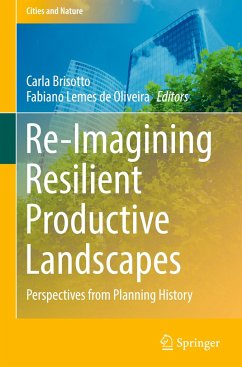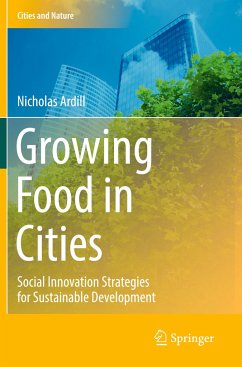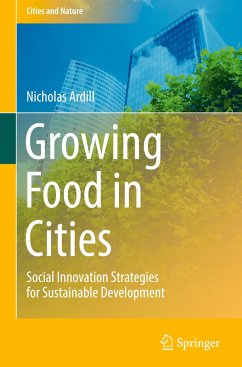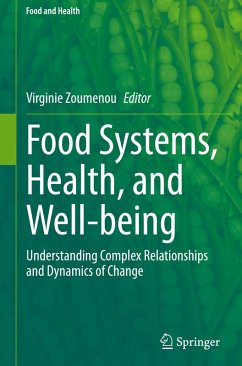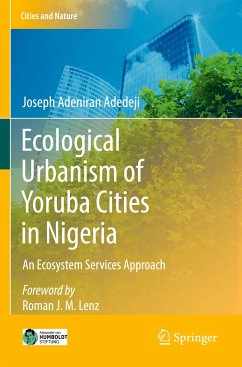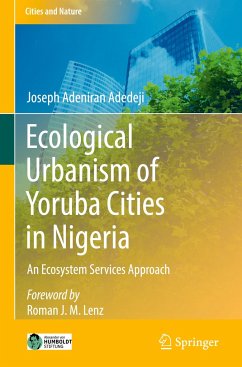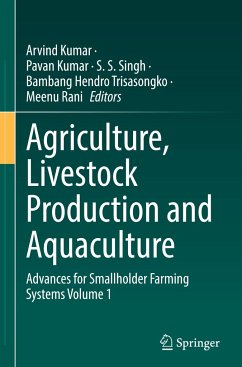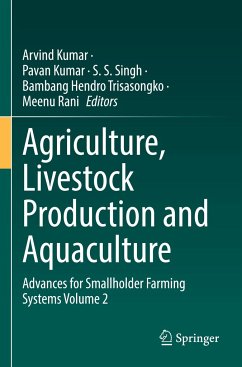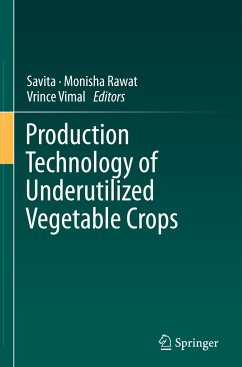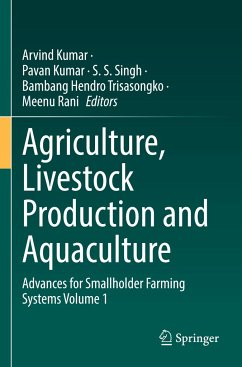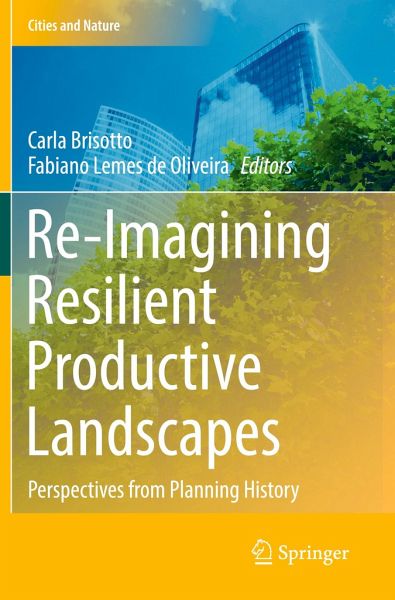
Re-Imagining Resilient Productive Landscapes
Perspectives from Planning History
Herausgegeben: Brisotto, Carla; Lemes de Oliveira, Fabiano
Versandkostenfrei!
Versandfertig in 6-10 Tagen
98,99 €
inkl. MwSt.

PAYBACK Punkte
49 °P sammeln!
This book explores how lessons from past urban planning experiences can inform current debates on urban agriculture. Productive landscapes today have been posited as instruments for the positive transformation related to territorial fragility and abandonment, promoting social cohesion, food security and wider environmental and economic benefits. The book will re-map the way in which seeming landscape limitations and challenges can be turned into potential, innovation and a new lease of urban-rural life. It does so by drawing on significant past urban agricultural experiences in planning as vec...
This book explores how lessons from past urban planning experiences can inform current debates on urban agriculture. Productive landscapes today have been posited as instruments for the positive transformation related to territorial fragility and abandonment, promoting social cohesion, food security and wider environmental and economic benefits.
The book will re-map the way in which seeming landscape limitations and challenges can be turned into potential, innovation and a new lease of urban-rural life. It does so by drawing on significant past urban agricultural experiences in planning as vectors for new critical reflections relevant to re-igniting ideas for future envisioning of urban scenarios in which productive landscapes play fundamental transformative roles. The focus is on planning ideas and the roles of key individual planners, all of which have designed agricultural strategies for the city at some point in their careers. It intends to help us today reimagine urban-rural relationships, and the transformation of under or mis-used urban open spaces, peri-urban areas, fringe conditions and in-between spaces.
The book will re-map the way in which seeming landscape limitations and challenges can be turned into potential, innovation and a new lease of urban-rural life. It does so by drawing on significant past urban agricultural experiences in planning as vectors for new critical reflections relevant to re-igniting ideas for future envisioning of urban scenarios in which productive landscapes play fundamental transformative roles. The focus is on planning ideas and the roles of key individual planners, all of which have designed agricultural strategies for the city at some point in their careers. It intends to help us today reimagine urban-rural relationships, and the transformation of under or mis-used urban open spaces, peri-urban areas, fringe conditions and in-between spaces.





